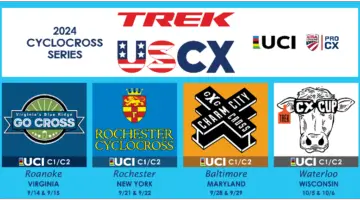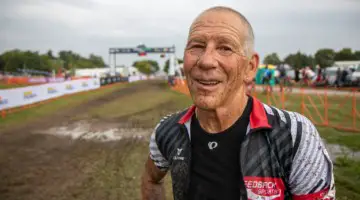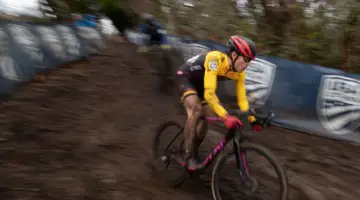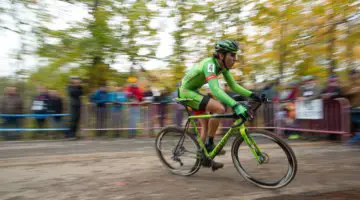For some racers, the first step to training, really training, for cyclocross or any other discipline for that matter, is to hire a coach. It can be an ordeal trying to determine who to hire, why to hire them and when to start a coached program, especially with a seasonal endeavor like cyclocross. So where do cyclocross and gravel racers looking to see if coached workouts are right for them start?
For this week’s Training Tuesday, we are revisited a relevant column by Chris Mayhew that walks us through the when, how and why of hiring a coach.
by Chris Mayhew
Seems self-interested, right? “Hire me and you’ll be faster than anyone self-coached.” Not really. Think of this as some free coaching for you on the topic of when, why and how to pick a coach for yourself. There are a lot of coaches out there these days and, while I may or may not be a good fit for you I can definitely help you figure out what’s right for you.
The “when” part of hiring a coach is my main impetus in writing this. I tend to get a steadily increasing load of clients starting in January. These are usually people with summer goals also focused on ‘cross. But come August the dam breaks and I get almost daily inquiries about coaching. I am 100% happy to work with these people and can make them faster. But once weekly racing starts up the coaching relationship is more about allocating resources and fatigue management than anything else. Basically, I’m making the most of what you already have. To go back to the cake analogy I’m fond of, you have already baked your cake and put the icing on it, I’m just helping you not eat it all in one sitting.
But what if you hired a coach in, say, June or July? Now the coach can address some weaknesses, such as sustainable power or handling skills, and work on those before the season starts. Also, coaching is a relationship, so why not get started communicating with someone a little earlier so you’ve got the kinks worked out and some trust built up ahead of time? Many people can only hire a coach for a set period of time. If that’s you I’d suggest starting with a coach two to three months before your race season starts, maximizing what you can get from a coach rather than starting in September with a month or less of open schedule time. Once you start racing it’s more or less race and recover, which is a pretty simple schedule (and which I’ll cover in a later column). It’s the lead in to the racing that’s tricky and where some guidance helps most.
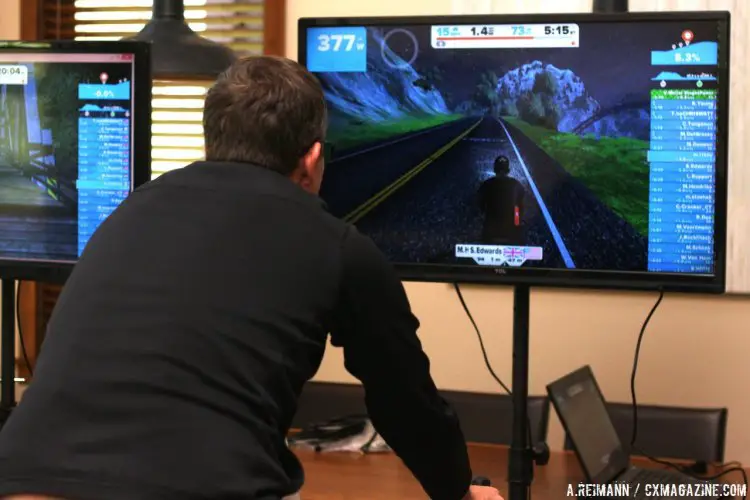
You can hop on a trainer and use any number of training programs out there as a training plan. But a coach can walk you through things, hold you accountable and act as a sounding board for your ups and downs. © A. Reimann / Cyclocross Magazine
So why would you hire a coach? There are two general reasons. The biggest one is usually accountability. Why pay a coach money and check in with them every week if you’re not going to do the workouts? It helps a lot of busy people push accomplishing a workout a bit higher up the priority scale than it might otherwise be. The second is what I think of as being a guide. You are in one place and want to be in another. That usually takes the form of “I was injured six months ago and want to make a comeback” or “I’ve been getting 15th in my local series and I want to get 5th.” You’re at one place and can see where you want to go, but you’d also like some help in getting there from someone with experience.
There are two other reasons that are important, but often not why someone initially hires a coach. Often people need some objectivity or a sounding board. It’s a lot easier to call the shots when you’re not personally involved. I find clients often already know what they need to do, but they need to hear it from someone else, even if I’m just repeating back to them what they’re saying. Having faith in what you’re doing and feeling that you’re on the right path is important. Often a coach can give you that sense of security. The other reason is off-loading.
You don’t have the time or interest in researching training methods and don’t want to think about how to apply them to yourself. “Just tell me what to do and when to do it and evaluate it after I’ve done it.” People have busy lives, and it makes some sense for some to pay someone else to think about all of that.
Why not hire a coach? Because you’re really busy. Maybe you just want to blow off steam when you ride, or can’t really predict the windows of time that will be available to you to ride. Maybe the last thing you need in your life is more structure, routine and a list of things to do. A lot of people are afraid they won’t be able to have fun anymore if they hire a coach. Hopefully that desire can be accommodated. But if you want to do group rides four days a week and you enjoy that, don’t ruin it with a coach. And if you currently have a coach and they’re not meeting your needs, express that, see if you can reach a resolution and if not move on.
How to hire coach? As I said at the beginning, sooner is better than later. Start asking your teammates and your friends and find out who coaches the people getting the results you want. Talk to a coach you already trust. I don’t coach XTerra or triathlons for example, but I know a great many people who do. Schedule an interview call. Coaching is a relationship and relationships are about communication. Talk to a few coaches on the phone and see who you click with.

Coaches are great resources and share the triumphs when training pays off at any age. File photo. Junior 9-10, 2015 Cyclocross National Championships. © Cyclocross Magazine
Have a general idea of what you want from a coach too and ask the coaches you talk with about your specific needs. Someone will stand out, or meet your needs and criteria to a T. Hire that person. It’s arguably against my own interests, but I’d also suggest staying as local as possible. They don’t have to be your neighbor. But someone who races in the same region you do and whom you might see face to face from time to time can bring a bit extra to the table. One of my favorite perks of coaching is doing a lap with clients at a venue, or asking them about a particular corner if they’ve raced before me.
Maybe you’re coming off an injury. Maybe you want to move up in the series rankings. Maybe you just don’t want to reinvent the wheel yourself. There are a lot of good reasons to hire a coach. Think about what you’re looking for or trying to achieve. Talk to the people around you and see who they recommend or who they are working with that puts them at the level you want to be. Talk to those coaches and see who is the best match for you and your situation. Start the search sooner rather than later, even if you can only work with a coach for a fixed period of time. Once you do hire that person, go all in, give them your full trust and make the most of the investment you’re making in yourself.
Can’t get enough? Browse all of our Training and Technique Tuesday pieces here from coaches Mayhew and others. Mayhew expects to contribute Training Tuesday installments every two weeks in the off-season.











